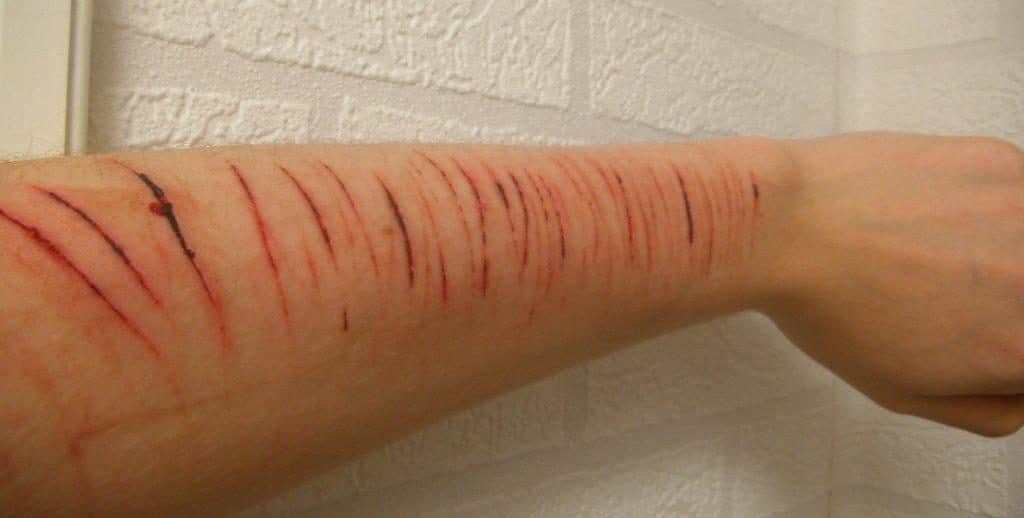Over the year a number of online challenges have led to teenagers committing suicide across the world. Be it the cutting challenge or the choking challenge, self-harm leading to death has been a dangerous online trend. The recent death of a boy who jumped from a building in Mumbai is being linked to a challenge-based online game- the Blue Whale Challenge.
Believed to have originated in Russia, the underground online game has 50 tasks, ranging from watching horror movies to cutting themselves with the last one asking the players to jump off a building. The players have to document all completion of all the tasks and send it to the anonymous admin who calls himself ‘Blue Whale’.
The craze of the Blue Whale Challenge that targets depressed teens has been spreading like wildfire in the last few months. This has been in the newest addition the list of dangerous online games that have haunted parents around the world.
Planking Challenge
Planking is a challenge where the player lies down in a rigid manner at an unusual place mimicking a wooden board. He/she then takes a photo of it and posts it online for the world to see. It became hugely popular on the internet in the late 2000s. Some posted a picture lying on a building’s edge, the balcony railings or shopping carts amongst many other.
But the craze of finding an ‘unusual place’ led to the death of 20 year-old Australian Acton Beale who fell seven stories while planking on a high-rise balcony, reported CNN.
Choking Challenge
The ‘choking game’ surfaced in 2005. This online ‘game’ was designed to achieve euphoria by depriving the brain of oxygen. People would strangle themselves to feel ‘high’. People, mostly teenagers, were told to strangle themselves until they almost pass out but stopping just in time so that they can experience the ‘high’.
The death of Karnel Haughton, a 12 year-old boy from Birmingham was one of the cases that went viral. The family claimed that the game was responsible for Karnel to die from suffocation.
Consultant psychologist Emma Citron said that such online trends heed to the ever-growing ‘dare-devil’ culture among teenagers. “In teenage brains there is a need to take risks. As part of being a teenager, they need to try new things that are potentially very risky and dangerous, like the game, and like drugs and alcohol,” she told The Independent.
Fire Challenge
Fire challenge is an activity which goads teenagers to set themselves on fire. Literally. They apply flammable liquid on their body and the set it aflame while recording it on video which is then uploaded on social media sites.
A 15 year-old boy, James Shores from New York died from his injuries after participating in the Fire Challenge. Another boy from Kentucky who is also 15, poured alcohol on his chest and lit himself on fire. When asked why he did this, he said, “I don’t know. I wasn’t thinking, really.”
The Police in their statement about Shores urged people to stop sharing the videos. “The people who participate in this so-called “game” do so for the notoriety and short-lived fame they receive on the internet. Taking away this fame could deter others from making the same mistake,” they said.
Cutting challenge
This came to light in 2015 but it was around for some time before that. This dangerous trend made teenagers cut themselves, take pictures and share them online. It is a form of self mutilation which is usually to deal with with emotional issues. It is promoted in social media because of which teenagers participating in it feel like they are a part of a popular group.
Speaking to AOL, child psychologist Gregory Jantz. Said, “It also is a symbol of belonging. A cutter usually knows other kids who are cutters and they belong in this group. So there’s a sense of identity with that as well.”
These online trends often go unnoticed by parents until they become viral. Once the parents notice, psychologists are consulted and the teenagers are given the help they need. But many a times, the help arrives too late. Deliberations and debates have been going on to make internet safer for adolescents.
Police of the country affected often look for the person starting such challenges so that they can eliminate the root cause. For instance, the administrator, of the Blue Whale Challenge, Ilya Sidorov, was arrested in Moscow recently.
Many organisations such as Games Adolescents Shouldn’t Play (G.A.S.P) which was founded, to stop the Choking game reach out the teenagers and spread awareness about the danger of such games, now exist and try to stop the trend before it spreads like a wild-fire.
